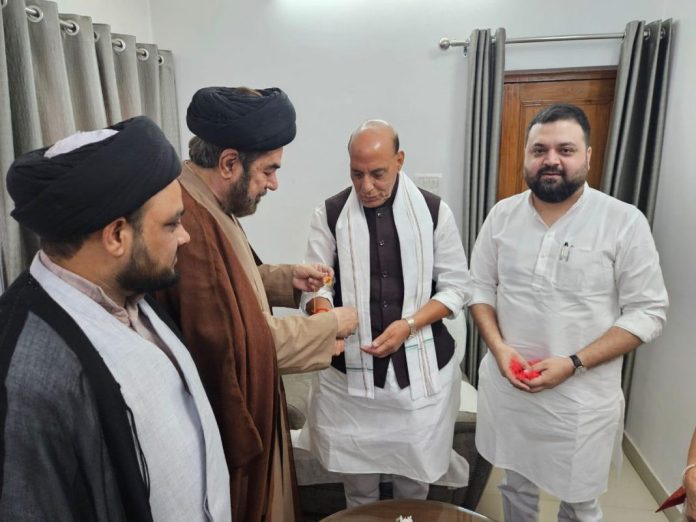Lucknow, June 12: The Shia community in Lucknow has decisively distanced itself from BJP-affiliated leaders, marking a significant shift in their political stance. This move reflects a broader sentiment within the community to reject individuals perceived as compromising their principles for political gains.
Historically, the Shia community in Lucknow has held considerable influence, particularly during the era of the Shia Nawabs who ruled the region from 1722 to 1856. Despite this, the community has often found itself at odds with political currents, especially in recent decades.
The late Maulana Kalbe Sadiq, a prominent Shia leader and former Vice President of the Muslim Personal Law Board, once stated that while the BJP might be acceptable, Narendra Modi wasn’t. This sentiment was reversed by his nephew, Maulana Kalbe Jawad, the Shahi Imam of Asifi Masjid in Lucknow, who later expressed a conciliatory stance towards Modi. This shift marked the beginning of what some see as a problematic relationship between certain Shia leaders and the BJP.
Despite this, the broader Shia community has largely rejected these leaders. The appointment of Shia individuals like Buqqal Nawad and Mohsin Raza as MLCs in Uttar Pradesh was seen as controversial, especially given the steps they took, such as praying in temples, which contravened Islamic tenets. This was perceived as a desperate attempt to curry favor with the BJP.
The community’s political leanings became evident in the recent elections, where prominent polling booths in Shia-majority areas overwhelmingly supported non-BJP candidates. For instance, in Husainabad Trust, Unity College, and Shia Yateem Khana, the votes for BJP’s Rajnath Singh were significantly outnumbered by those for his rival, Ravidas Mehrotra from the Samajwadi Party.
The rejection of BJP by the Shia community is rooted in a history of political expediency and shifting alliances. Post-1967, the Shias in Lucknow faced communal riots and increasing marginalization, which led some to seek new political alignments, including with the BJP’s predecessor, the Bharatiya Jana Sangh. This history of political maneuvering has left a lasting impact on the community’s relationship with various political entities.
In contrast, the Sunni community in Lucknow has experienced significant economic and social advancements, largely due to migration to Gulf countries. This has resulted in a demographic and economic shift in Lucknow, with Sunnis now holding a stronger socio-economic position compared to their Shia counterparts.
Despite the narratives pushed by certain leaders, the majority of the Shia community has consistently voted against the BJP. This was evident in the voting patterns from the 2014 and 2019 general elections, and the 2017 and 2022 UP state elections, where Shias supported socialist and secular candidates.
In conclusion, while some Shia leaders may have aligned with the BJP, the community at large has remained steadfast in its opposition, prioritizing principles over political convenience. This ongoing rejection highlights a significant aspect of the community’s political identity.




